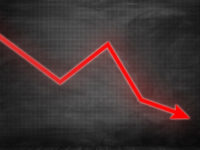The latest Xero Small Business Index report decreased by two points in September to 121 points, with the Index averaging 122 points for the previous quarter until last month, which was marginally lower than the average for the first half of 2023 (127 points).
Sales growth remained slow in September, rising just 5.5 per cent year-on-year (y/y) and averaging 6.2 per cent y/y in the three months to September. The index has interpreted the results as an indication that sales, while growing, are still below the pre-COVID average (7.8 per cent y/y).
Despite these figures, Australia’s sales growth results are by far the strongest of the five countries (Australia, New Zealand, United Kingdom, United States and Canada) measured in the Xero Small Business Index.
“While small business performance has dropped slightly in recent months, Australian small businesses remain remarkably resilient, given the challenging economic environment of high-interest rates and persistent inflation,” Louise Southall, Xero economist, said. “Despite the prevailing challenges, sales growth in Australia is outpacing other XSBI markets.”
Across the industries, sales growth in the three months to September was led by health care (+13.2 per cent y/y), education and training (+10.5 per cent y/y), construction (+8.1 per cent y/y) and public administration and safety (7.7 per cent y/y). The weakest industries were agriculture (-6.2 per cent y/y), wholesale trade (-1.1 per cent y/y) and retail trade (-0.8 per cent y/y).
Meanwhile, wages growth equated to just 1.9 per cent y/y in September, with the largest wage rises paid by hospitality firms (+4.4 per cent y/y) and the smallest by health care (+1.8 per cent y/y). These results, while positive for inflation and cost control within small businesses, are less positive for the sales outlook as real wages continue to fall. This puts more pressure on already stretched household budgets and leaves them with less disposable income to spend with small businesses.
Jobs rose 3.0 per cent y/y in September, similar to the pre-COVID (Jan 2017 to Dec 2019) average. In the three months to September, jobs growth was led by health care (+8.0 per cent y/y), while hospitality (-0.5 per cent y/y) and real estate (-1.0 per cent y/y) saw a decline in jobs. Tasmania was the only state to see a decline in jobs (-0.4 per cent y/y), while job gains were led by Western Australia (+6.0 per cent y/y), South Australia (+4.0 per cent y/y) and Queensland (+3.4 per cent y/y).
Payment times have remained largely stable in Australia so far this year with payments to small businesses made on average 6.5 days late. However, payment times varied substantially between industries, with small businesses in health care paid, on average, only 1.9 days late in the three months to September, compared to those in wholesale trade (12.5 days) and education and training (9.5 days).
“Despite this year’s challenges, Australian small businesses are holding steady and, in some industries, even thriving,” Will Buckley, country manager at Xero Australia, said. “With the holiday period approaching, we encourage Australians to support small businesses where they can. This might mean shopping small, leaving positive reviews or connecting with business owners. While retail and hospitality have had a difficult few months, they will be hoping for a resurgence during the festive season.”















